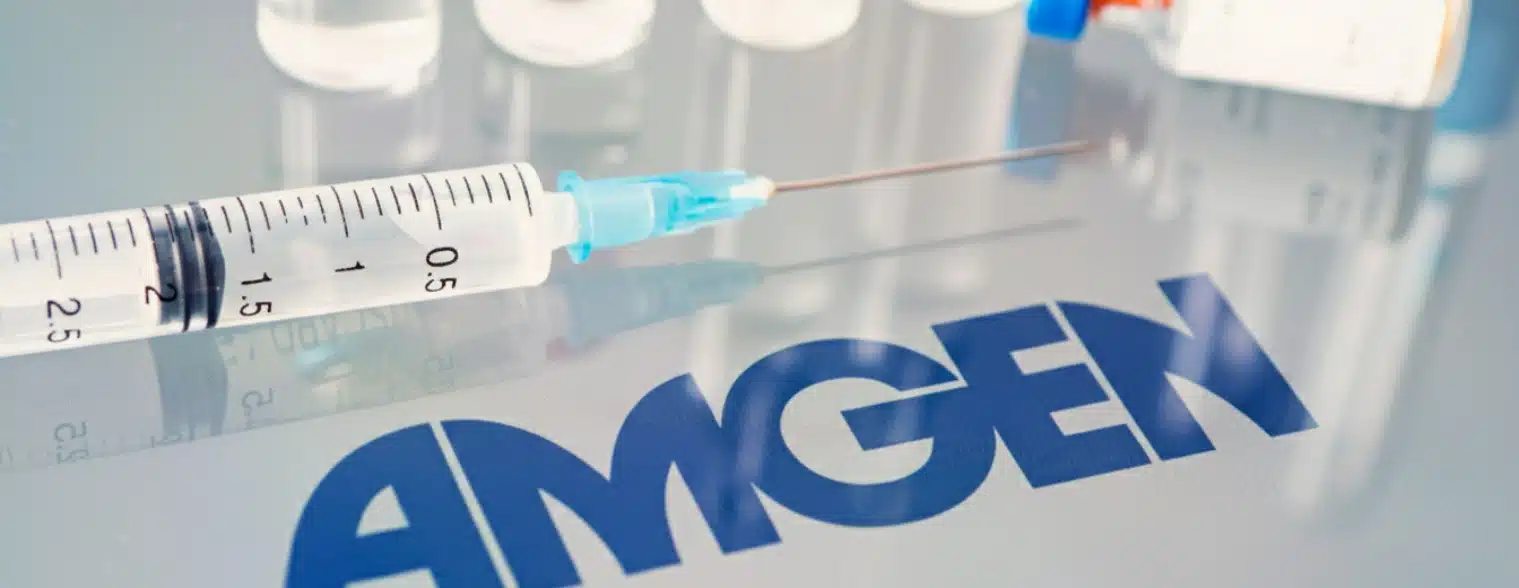Takeaways
- Once-monthly MariTide led to up to 17.5% weight loss in 52 weeks, with minimal regain after stopping treatment.
- The drug combines GLP-1 and glucagon receptor activity, offering fat burn and appetite suppression in one injection.
- Phase 3 trials will test its potential to become a long-acting alternative to weekly obesity medications.
Weight Loss Innovation Reaches a Tipping Point
Obesity care has entered a new phase, driven by breakthroughs that prioritize both efficacy and convenience. Once-weekly injectables like semaglutide changed the landscape, but adherence and rebound weight gain remain persistent challenges. Now, a once-monthly therapy—MariTide (AMG-133)—offers a fresh approach with promising results. Amgen’s recently published Phase 2 trial data reveal substantial and durable weight loss, even after treatment cessation. This raises new questions and possibilities for long-term obesity management.
With public health demands rising and patient expectations evolving, the momentum has shifted toward long-acting, sustainable solutions. Monthly dosing could transform how patients engage with therapy, especially when the treatment continues to work beyond the final injection. Early adopters are already asking how MariTide compares to other options and what makes it different.
How MariTide Works: Dual Receptor Activation Explained
A Break from the GLP-1-Only Model
MariTide operates through a unique dual-action mechanism. It targets both the GLP-1 receptor, known for reducing appetite, and the glucagon receptor, which activates metabolic burn. While GLP-1 drugs like semaglutide slow gastric emptying and promote satiety, they lack meaningful energy expenditure benefits. MariTide adds this missing element by recruiting glucagon receptor activity.
The synergy of this dual engagement offers more than additive effects. It creates a metabolic shift that may influence how the body regulates fat stores and caloric output. This combined action moves beyond appetite suppression into energy mobilization. It marks a critical difference from the incretin therapies that dominate today’s protocols.
The Role of Thermogenesis in Durable Fat Loss
Preclinical studies suggest that glucagon receptor activation increases mitochondrial thermogenesis. This metabolic heating process elevates basal energy burn without requiring changes in physical activity. By encouraging cellular heat production, MariTide supports ongoing fat breakdown even when food intake remains stable.
This thermogenic effect may explain why MariTide users in the Phase 2 trial retained weight loss long after discontinuing injections. Unlike pure GLP-1 agonists that see rapid reversal, MariTide appears to reset the metabolic “set point.” Researchers continue to explore the depth and duration of this shift, but early signals point toward an unprecedented level of post-treatment stability.
Inside the Phase 2 Trial: Design, Doses, and Duration
Trial Population and Inclusion Criteria
The Phase 2 clinical study enrolled 568 adults with obesity, with and without type 2 diabetes. Participants had a body mass index (BMI) between 30 and 50 and no recent history of significant weight-loss medication use. This carefully selected population allowed for robust conclusions across a range of metabolic profiles.
Dose Groups and Injection Schedule
Subjects were randomized into one of four arms: placebo or 140 mg, 280 mg, or 420 mg of MariTide. Each group received monthly injections over a 52-week period. The simplicity of the once-monthly administration appealed to both participants and clinicians monitoring adherence.
Measuring Success at 52 Weeks
The trial’s primary endpoint focused on percentage body weight reduction at week 52. Secondary endpoints included changes in waist circumference, metabolic biomarkers, and safety profiles. Investigators also tracked patient-reported outcomes related to hunger levels, energy, and overall satisfaction with the injection schedule.
Results at a Glance: What the Data Shows
Percentage of Weight Lost by Dose
Amgen’s published data in the New England Journal of Medicine paints a clear picture. Patients receiving 420 mg of MariTide lost an average of 17.5% of their body weight. The 280 mg and 140 mg groups followed closely with 16.9% and 13.1% average reductions, respectively. Placebo recipients lost just 2.8%, highlighting the drug’s specific impact.
Beyond the Numbers: Patient Retention and Adherence
Monthly dosing proved beneficial for maintaining engagement over the year-long trial. Retention exceeded 90% in all active groups. Participants cited convenience, fewer appointments, and easier planning as reasons for staying on track. This aligns with broader findings that simpler regimens improve long-term outcomes.
Side Effects: What Patients Reported
The most common side effect was nausea, affecting 20–28% of MariTide users depending on dose. Most episodes resolved within two weeks and were described as mild. A small number of patients experienced transient diarrhea or appetite suppression beyond target levels. No serious adverse events were linked to the drug.
Durability After Discontinuation: Does the Weight Stay Off?
Weight Regain vs. Weight Retention After Washout
One of the most striking outcomes from the trial emerged during the 16-week washout period. Despite halting treatment, patients retained 85–92% of their weight loss. Those in the highest dose group saw only marginal weight regain. This pattern strongly deviates from typical GLP-1 outcomes, which often show quick rebounds. For example, semaglutide withdrawal has been associated with regaining two-thirds of prior weight within one year.
Why Durability Matters in Obesity Pharmacotherapy
Sustainable weight management requires more than short-term calorie deficits. It depends on long-term metabolic recalibration. MariTide’s ability to maintain fat loss without continuous medication raises its potential as a game-changer. It reflects a shift toward more sustainable therapies that align with our broader rejuvenation and healing philosophy.
How MariTide Compares to Weekly GLP-1s
Effectiveness vs. Semaglutide and Tirzepatide
Though not a head-to-head trial, MariTide’s efficacy appears competitive with leading weekly GLP-1 agents. Semaglutide typically produces 15% weight loss over 68 weeks, while MariTide achieved up to 17.5% in just 52 weeks. Time-to-response and durability also favor MariTide based on early signals.
Injection Burden and Patient Preference
Fewer injections mean reduced complexity, fewer supplies, and potentially less stigma around medical weight loss. Monthly dosing could benefit individuals who travel frequently or experience injection fatigue. It may also ease adoption for patients new to pharmacologic interventions.
Safety Profile and Risk Management
Nausea, Hypoglycemia, and Metabolic Markers
Across all groups, hypoglycemia rates remained low, even among participants with diabetes. No significant changes in liver enzymes, lipid panels, or renal function were reported. Investigators monitored metabolic markers closely and saw improvements in fasting insulin, triglycerides, and HOMA-IR scores.
Tolerability Across Age, Sex, and BMI Subgroups
Tolerability remained consistent across demographic subgroups. Both men and women responded similarly in terms of weight loss and side effects. Older patients and those with higher baseline BMIs tolerated the drug well, with no evidence of dose-limiting toxicity.
3 Practical Tips: What Patients Should Know Now
- Ask your provider about long-acting injectable options if you struggle with weekly medication schedules.
- Track progress closely in the weeks following your final dose to assess long-term benefit.
- Prepare for mild side effects in the first weeks of therapy by adjusting meal size and timing—and consider vitamin injections to support early-stage energy and wellness.
The Road Ahead: What to Expect in Phase 3
Trial Timeline and Population Expansion
Amgen plans to launch a global Phase 3 trial in early 2025. It will expand inclusion criteria to cover adolescents, individuals with cardiovascular risks, and patients transitioning from other weight-loss medications. Recruitment is expected across North America, Europe, and parts of Asia.
Potential FDA Pathways and Labeling Implications
If results hold, MariTide may qualify for fast-track designation. FDA guidance specifies durability thresholds and labeling criteria that the drug may now meet. Approval could position it as a long-acting alternative to current once-weekly standards. Labeling will likely emphasize monthly dosing and sustained effects.
Will Monthly Become the New Standard?
As clinical expectations evolve, treatment goals now prioritize both outcome and experience. If MariTide consistently delivers durable weight loss with fewer injections, it may shift prescribing habits industry-wide. A monthly option may simplify care models and reduce drop-off among high-risk populations.
FAQ: Monthly MariTide and Obesity Care
How long does weight loss from MariTide typically last after stopping treatment?
Participants in the Phase 2 trial retained the majority of their weight loss—up to 92%—four months after their final injection. While individual outcomes may vary, this trend suggests that MariTide may influence longer-term metabolic balance. Follow-up studies are underway to examine how long the effect persists beyond 16 weeks. This durability makes MariTide distinct among current obesity treatments.
What makes MariTide different from semaglutide or tirzepatide?
MariTide activates both GLP-1 and glucagon receptors, while semaglutide and tirzepatide primarily engage GLP-1 and GIP. The glucagon component encourages fat burning via thermogenesis, not just appetite reduction, and complements other regenerative services like microneedling, which stimulate collagen production through different pathways. MariTide is also delivered monthly instead of weekly.
Are there risks for patients without diabetes using this drug?
Phase 2 data showed consistent safety profiles across participants with and without type 2 diabetes. Nausea and mild GI symptoms appeared most frequently, especially early in treatment. No blood sugar complications were reported in non-diabetic users. Still, careful screening and monitoring will remain essential during rollout.
Will MariTide be available for insurance coverage once FDA approved?
Insurance coverage will depend on formal FDA approval and negotiated formulary placement. Early signals suggest that the durability and monthly format may appeal to insurers aiming to reduce long-term costs. Employers and health plans may prioritize it for patients who struggle with weekly adherence. Coverage policies will become clearer after Phase 3.
Who Stands to Benefit the Most
Patients who face difficulties with weekly self-injections may find relief in a once-monthly regimen. MariTide could also help individuals who plateau on GLP-1s, offering a new metabolic approach without daily lifestyle disruption. Those without diabetes who want an effective long-term solution may see particular value in the durability profile.
Fountain of Youth and our medical weight loss team stay fully informed on therapies like MariTide as they move through the clinical pipeline. We make sure our clients benefit from emerging treatments as soon as they become accessible.
Questions? We are here to help! Call us anytime at 239-355-3294 for personalized weight loss guidance.
Rethinking Obesity Treatment: A New Chapter?
MariTide may mark the beginning of a shift from constant dosing to more strategic, durable interventions. Its unique receptor profile, monthly convenience, and weight loss persistence set it apart. If Phase 3 confirms these benefits, it could reshape expectations for what obesity therapy can achieve—both in the short term and long after treatment ends.
Medical review: Reviewed by Dr. Keith Lafferty MD, Fort Myers on November 10, 2025. Fact-checked against government and academic sources; see in-text citations. This page follows our Medical Review & Sourcing Policy and undergoes updates at least every six months.




